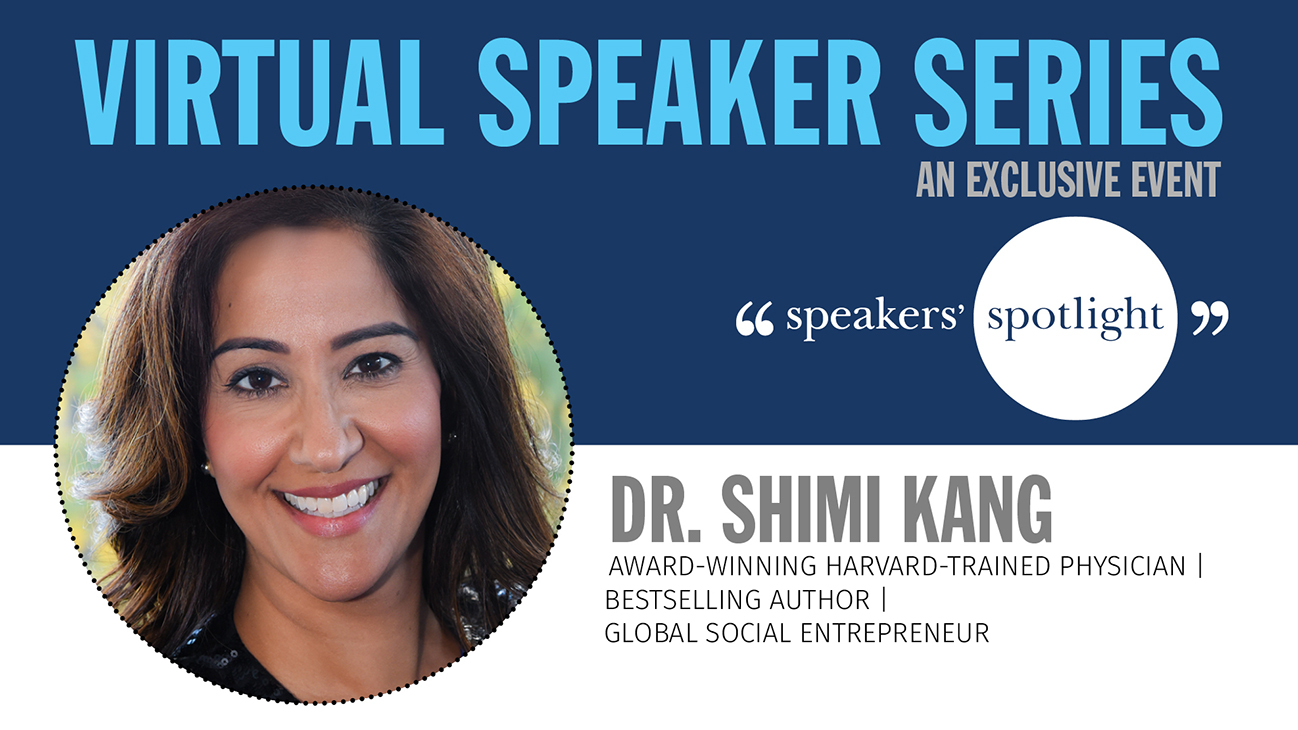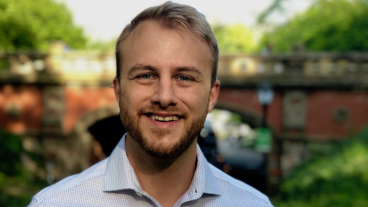For our latest Virtual Speaker Series session, we were joined by Dr. Shimi Kang for an informative session on understanding the neurological causes of stress and anxiety, strategies for improving our adaptability during turbulent times at work and home, and general strategies for bettering our mental health. Besides the content of the session itself, Dr. Kang also provided a helpful summary of resources to reference alongside her presentation including diagrams, explanations, and videos.
To begin with, Dr. Kang established how our brains behave distinctly when under stress. She outlined how stressful situations move the mind from making conscious choices and interacting with the world around us, to an instinctual survival mode. This survival mode is what many of us know as the flight or fight response, which may seem like it should be a physical reaction but is in fact entirely mental. Dr. Kang talked about how in this survival mode we are more prone to anxiety, irritability, and distraction. These negative impulses are natural, she said, but it’s best if we can try to control them and push our brain back to a “growth” mode. To do this we can use the ideas of Others, Play, and Downtime.
The first of these, referred to by Dr. Kang as the importance of others in our lives, is quite simply the healthy connection we should try to have with other people in our lives. Human beings are naturally social creatures, and we naturally crave and need interaction with others. Of course, in this time, when most of us are still under various stages of lockdown and otherwise generally trying to practice physically distancing, it can be even more difficult to find that normal social connection. But Dr. Kang highlighted the importance of seeking this out all the same, and also trying to be conscious about how we are interacting with others. Especially in workplace settings, she said, it’s easy to become stressed and fall into a more authoritarian/controlling or passive mindset. Dr. Kang said that instead we should try instead to strive for collaboration and empathy with others—allow for the bravery of vulnerability that leads to real connection.
Dr. Kang’s next point of discussion was about the importance of play in work and home life, as it ties into overall mental health and adaptability. She said play is such a key part of mental growth because it’s where we experiment, imagine, and challenge ourselves to overcome obstacles (i.e. improving at a skill or sport). To be properly playful though, Dr. Kang said, takes a conscious/interactive mind, but we should also strive not to be too self-conscious or pre-emptive of attempts to try new things. As we get older, it can be easy to stop ourselves short of trying something new or freeing ourselves of inhibitions because it feels uncomfortable. Dr. Kang talked about the importance of trial and error, at all ages and in all settings. Flexing the “mental muscles” of storytelling, imagination, and even physical challenge (which requires intuitive problem solving) is a great way to strengthen the adaptive and flexible part of our mind, which builds long-term resilience.
Finally, there is the idea of downtime, both to combat stress and build up mental reserves for difficult moments. For Dr. Kang, healthy mental downtime still requires a conscious effort just like the other points. She said that downtime is not just about not working, but actively giving ourselves a psychological breather. We can do this with a quick breathing exercise, or something more substantial like spending time in nature. One important distinction that Dr. Kang flagged was around the tech we use. She said that the prevalence of tech has meant that it’s now almost like air or food, just a given element that fills everyday of our lives. To properly effect mindful downtime, that probably doesn’t mean scrolling social media or playing video games. These things can have a part in our lives, she said, but we should try to think of tech the same way as we do food: there are healthy options and junk options. It’s useful to establish healthy tech habits much the same way we would a healthy diet. Coincidentally, Dr. Kang just released a book last week, The Tech Solution, about helping children to develop lifelong healthy tech habits.
At the end of our session, Dr. Kang once again talked about the importance of taking our mental health seriously—and not only in this time of crisis and strain. By proactively trying to grow and strengthen our mind, we go from simply coping with stress to finding a path to peak performance that will continue, whatever the future may hold.
An award-winning medical doctor, researcher, and expert on the neuroscience of innovation, leadership, and motivation, Dr. Shimi Kang provides science-based solutions for health, happiness, and achievement in the workplace, classroom, and at home. With 20 years of clinical experience and extensive research in the science that lies behind optimizing human intelligence, Dr. Kang provides practical tools to cultivate the key 21st century skills of resilience, connection, creativity, and more.
Speakers’ Spotlight has been offering virtual presentations since 2009. We work with a range of speakers who are comfortable with presenting virtually on a variety of topics. If interested, contact us for more information.




